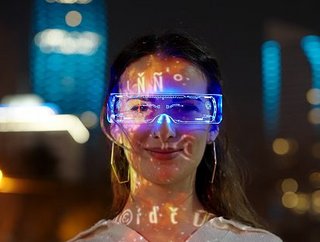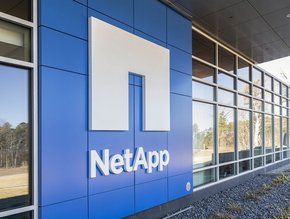Mind your language: Is NLP a natural fit for the Metaverse?

When the Metaverse opens its doors, there will be plenty to talk about. In a brave new virtual world designed to replicate and extend our regular, down-to-earth reality, stunning new levels of computer power will be required to ensure the user experience is good enough to keep people immersed in the new environment.
Central to these developments will be natural-language processing (NLP) powered by artificial intelligence (AI), working together to take human input and respond to it in similarly human-like ways.
NLP will find multiple use cases in the Metaverse, believes Kalyan Kumar, Global Chief Technology Officer and Head of Ecosystems at HCLTech. Its very success will rely on the most realistic, life-like experience for users who will be able to use their voice to interact with the platform. NLP will also make it easier for AI elements of the Metaverse to be incorporated with the human input expected to dominate.
“NLP provides many accessibility features for different users, such as providing an alternative to virtual keyboards by allowing users to execute commands even when their hands are occupied,” says Kumar. “It can also make the Metaverse more accessible to non-English-native audiences through automated translation and transcriptions. With this in mind, NLP technologies will be essential to the successful development of the Metaverse.”
While established businesses including some from the financial services sector are already making plans for the Metaverse – and the billions of dollars predicted to be generated due to its introduction – a lot more work is required before it is more than an entertainment product.
“To thrive, the Metaverse will require great natural language processing, understanding and generation of the highest accuracy and quality,” says Prashnant Natarajan, Vice President Strategy and Products, H2O.ai. “That’s because as it’s a purely digital medium with no physical presence, many Metaverse interactions will be driven by unstructured data – specifically, unstructured data around voice text, images, and so on.”
That means the fundamental building blocks of the Metaverse will require NLP, says Natarajan, which will help ensure those interactions succeed more often than they fail. Human-to-human interactions may be rewarding, he says, but technical issues can frustrate, so the higher the accuracy of the natural language processing in the Metaverse, the more likely it is to succeed as an industrial application.
‘Wild West’ Metaverse requires natural-language processing
The early Metaverse will not be for the faint of heart, says Yash Kotak, Product Management at Vonage and Founder & CEO of Jumper.Ai, as it will take time for regulation and appropriate monitoring to become established.
But the rewards for all will be significant – an NLP-powered Metaverse could create a unified global forum where anyone can communicate and understand each other, says Kotak. “A colleague in the UK will be able to communicate with a colleague in India, and each will be able to use their own native language.”
This new global forum will also present challenges to be addressed, says Kotak. “Currently, the Metaverse is very much a ‘Wild West’ in terms of monitoring and regulation, as there is no formulaic way to interpret what users are discussing,” he says. “This creates a haven for cybercriminals, whose activities cannot be properly monitored or processed.”
There will also be challenges related to the interactions that take place between virtual avatars and virtual offices, predicts Natarajan. On the face of it, these might not seem to be as important as global cybersecurity and government regulation, but success in these areas will also be required in order to develop an effective Metaverse experience that companies and consumers can commit to.
“If we end up with low-accuracy NLP and low-accuracy computer vision, users will consistently get low-quality interactions and engagement will dip,” says Natarajan. “After all, what do humans do when they get frustrated with systems? We give it 72 hours, and then stop using it.”
Metaverse and AI can create new products and services
Companies from all sectors – not just technology providers and software companies – should look closely at the Metaverse, and HCLTech’s Kumar offers three points every organisation should consider.
“First, they must realise that the Metaverse is all about modifying experiences, and is projected to be a huge market opportunity by 2030 for businesses, “ he says. “Secondly, businesses should look to the Metaverse as a platform for innovation and creativity. They should harness the power of AI to create new products and services that will improve customer experience and give them a competitive advantage.
“And, lastly, they should realise it is an opportunity for different industries to explore different use cases to enhance their innovation quotient and take a step ahead in the future.”
Kotak agrees that non-technology companies shouldn’t ignore the capabilities of the Metaverse or be put off by its inevitable focus on user experience and graphical interfaces, issues more often associated with B2C platforms and products.
“Currently, the Metaverse is primarily used as an entertainment platform,” he explains. “However, more and more multinational corporations, such as banks, are starting to use the space for commercial opportunities. While the Metaverse may not initially impact a non-technology company, it may shift their day-to-day operations in the near future.”
- NetApp Cloud Complexity: Reliable Data is Key to AI SuccessCloud & Cybersecurity
- AMD: Expansion, Growth and Doubling Down on AI InnovationAI & Machine Learning
- Flexential: Momentum Report Highlights Hybrid IT InnovationCloud & Cybersecurity
- Microsoft & Alphabet: AI and Cloud Strategy Driving SuccessIT Procurement






